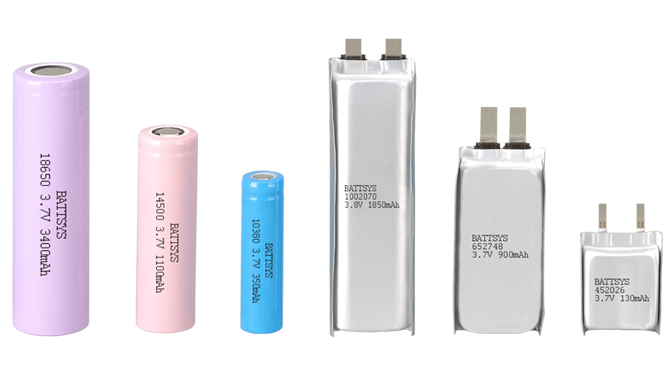18650 lithium battery or polymer lithium battery: which is safer?
The general public opinion seems to be that polymer lithium batteries are safer and are said to never explode. Based on my understanding, the claim that polymer lithium batteries are safer mainly comes from manufacturers of counterfeit mobile power banks on Taobao, who use polymer lithium batteries as a selling point to attack products using 18650 battery cells.
You can use "battery explosion" as a keyword, Du Nianzhi. The main news related to this topic is related to mobile phones, and now there are no models of non polymer lithium batteries available. Therefore, the claim that polymer lithium batteries are safer than 18650 lithium batteries is untenable, and there is no such thing as an absolute guarantee that they will not explode. Except for a few extreme explosion cases, bulging phenomenon is almost a common problem of polymer lithium batteries.

Of course, polymer lithium batteries have their unique and irreplaceable advantages over 18650 (cylindrical) lithium batteries: square flatness, which makes them suitable for use in lightweight and portable electronic devices. In addition to the highly dependent mobile phones, polymer lithium batteries are also used in ultra-thin laptops. No matter how high or low its security is, as long as we can't live without our phones, they are in your hands or pockets.
Fortunately, almost all of the star models of mainstream mobile phone brands currently use Japanese and Korean battery cells, all of which are from international manufacturers. The overall safety is very high, so there is no need to worry about it in daily use.
Looking back at
18650 lithium batteries, this "ancient" battery that is often attacked by various counterfeit mobile power manufacturers is still widely used in various electronic devices, such as mobile power banks. In fact, in high-end application fields such as professional imaging equipment and laptop batteries, 18650 has always been a major player, and the large-scale application of Tesla electric vehicles has further enhanced the high safety image of this type of battery.
18650 lithium batteries have mature technology, good consistency, high capacity density, and advantages that cannot be replaced by polymer lithium batteries in high-capacity hybrid applications.
So, what choices should we make when considering battery types in daily life? Taking mobile power banks as an example, my personal opinion is to choose products from well-known battery suppliers, such as Sanyo, Panasonic, Sony, Samsung, LG, and domestic brands like Lishen, Bick, Changjiang, and Zhuoneng, which also have certain scale and strength, and high safety guarantees. The safety of battery cells mainly depends on the manufacturer's quality control, rather than whether they are polymer or ordinary lithium batteries.
By the way, to correct a widely accepted misconception: polymer lithium batteries do not necessarily mean they are thinner and lighter. Lightweight or heavy has always been closely related to energy density. Whether the battery is cylindrical or square, there is no significant difference in volume and weight between polymer lithium batteries of the same capacity and 18650 lithium batteries during the same period.
